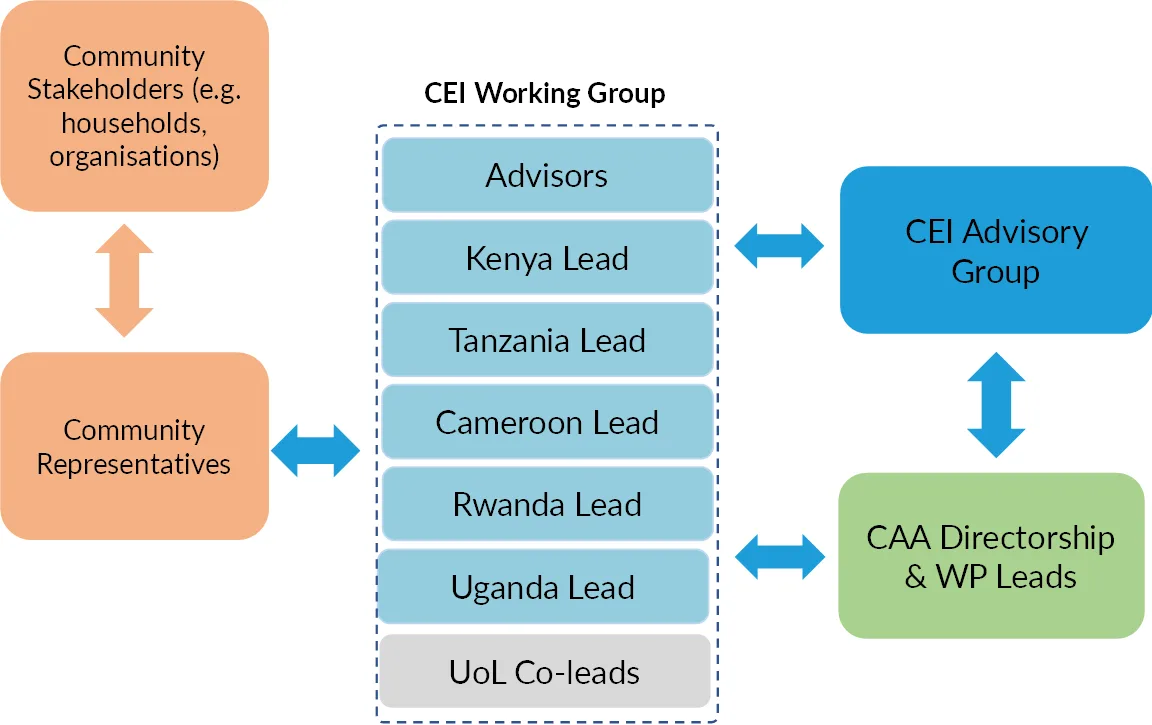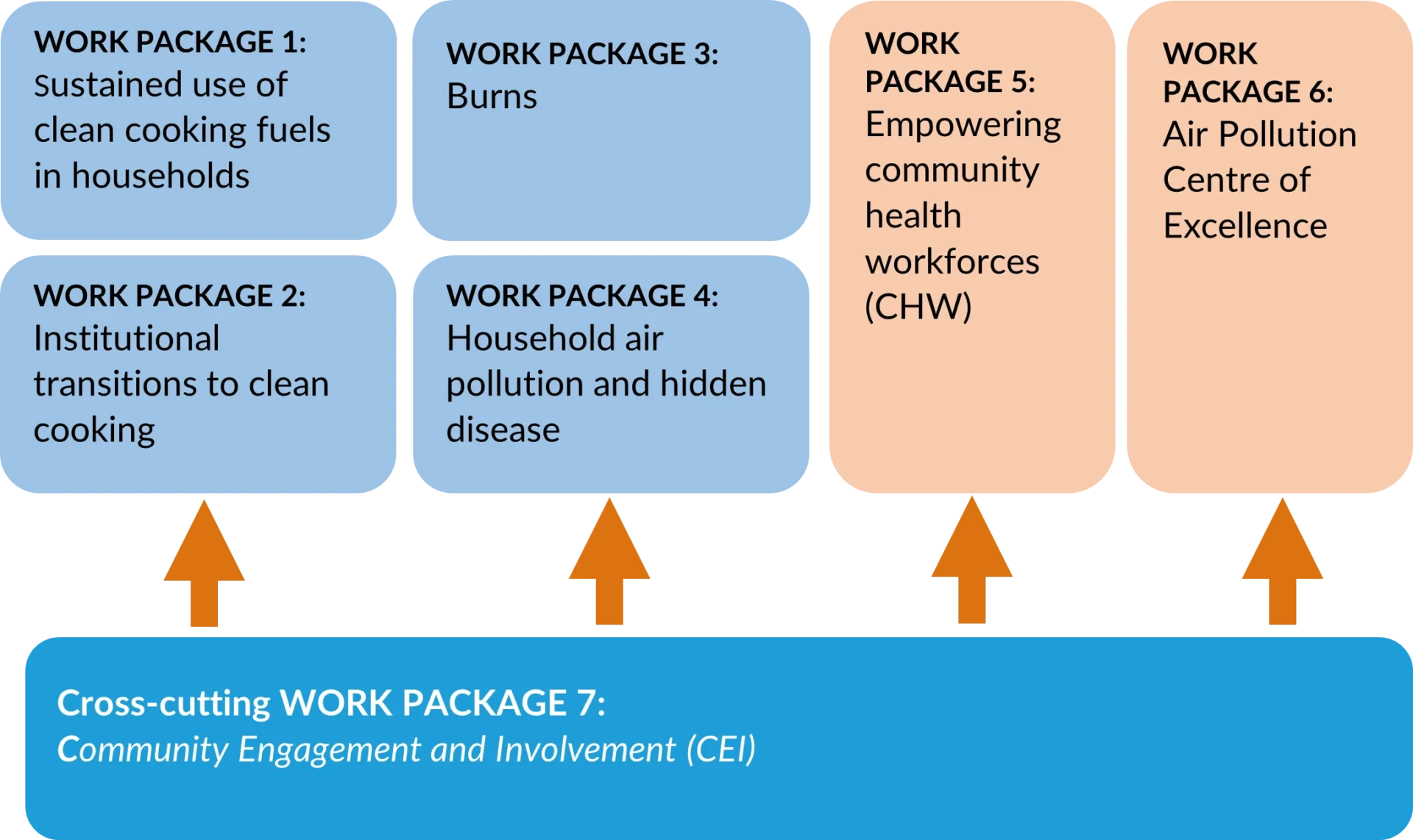Community Engagement & Involvement
Our CEI Strategy has been developed through a combined process of engagement and discussion across the partnership with individuals experienced in CEI, reviewing existing guidance on CEI from international agencies and research organisations and engagement with the National Institute of Health & Care Research (NIHR) in CEI related activities
Our CEI Strategy: Aim & Objectives
- Aim: To ensure CEI is considered in all research projects to maximise impact, specifically via a dedicated plan for CEI in each work package and/or specific sub-project.
- To ensure CEI is considered in all research projects to maximise impact, specifically via a dedicated plan for CEI in each work package and/or specific sub-project.
- To ensure implementation of CEI across the programmes through monitoring in a structured and integrated way.
- To capture the impact of CEI through collecting stories and case studies of change.
- To deliver training on CEI for all levels of the CLEAN-Air(Africa) teams.

What is CEI and Why is it important for Global Health Research?
CEI generally refers to strategies and processes to ensure that global health research is undertaken in collaboration with the people and communities most likely to be affected by the research.
In response to the call to “Leave No One Behind”, our funder – the UK National Institute for Health and Care (NIHR) – set out a vision for CEI as having a central role in all global health research.
CEI strategies should aim to empower marginalised people and communities to have a voice in the design, implementation, analysis, and dissemination of research that impacts upon their lives.
Concepts of Community, Involvement and Engagement
“Communities” may be challenging to delineate. Consideration needs to be given to how and by whom a “community” is defined and who might be excluded by such definitions by understanding the dynamics of power and relationships between communities’ members.
For CLEAN-Air(Africa), “communities” refers to the participants, households, schools, policymakers, health service workers (e.g. community health workers, physicians), community organisations, faith groups and others who might be considered key stakeholders.
The community will be specific to each work package and identified during the planning stage of the programme of work together with representatives of the communities themselves.
The terms “engagement” and “involvement” are often used interchangeably and overlap with the concept of “participation”. At CLEAN-Air(Africa), we understand them in the following way:
- Community Engagement refers to building relationships, collaboration, and ongoing communication with a community via a two-way dialogue where its needs, concerns, and aspirations are listened and incorporated into decision-making processes. It is often a long-term commitment that can include activities like town hall meetings, focus groups, surveys, public forums, and other interactive events where community members have a direct say in decision-making processes.
- Community Involvement refers to individuals or organizations participating in specific activities or projects within a community. It often involves people contributing their time, resources, or skills to support or address a particular issue or cause within the community. Community involvement can be more project-oriented and may not always involve ongoing interaction or relationship-building with the community.
CEI Structure for CLEAN-Air(Africa) Unit
CEI is a key overarching principle that all project partners must commit to throughout the research project cycle. CLEAN-Air(Africa) aims to develop and operationalise a strategy for community engagement and involvement by drawing best practice literature and the wealth of expertise from partners who have experience in CEI. This work will be carried out under work package 7 but will link directly to all work packages, as demonstrated in this figure:


